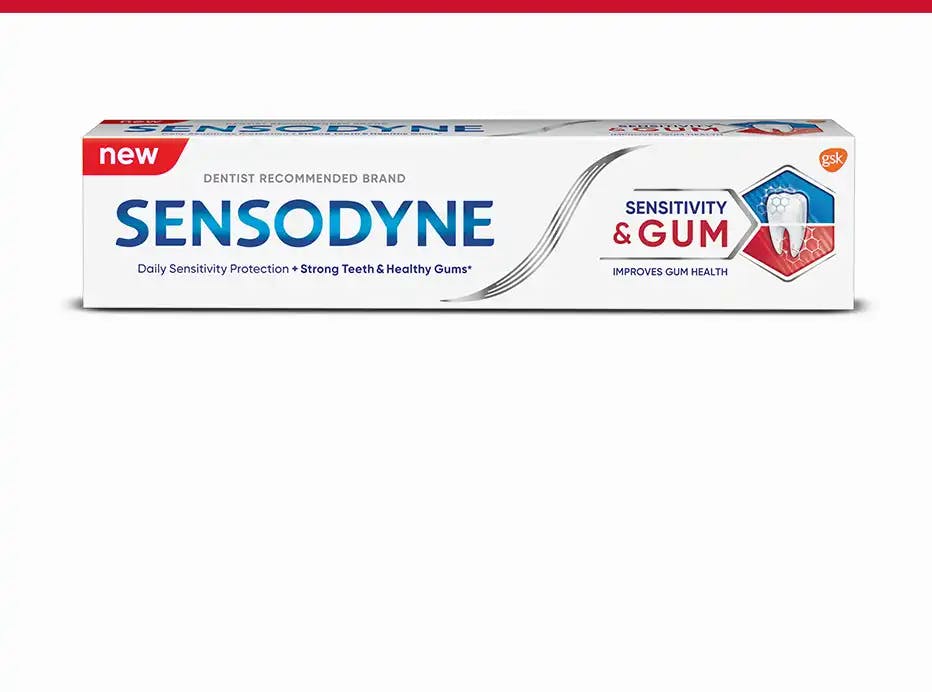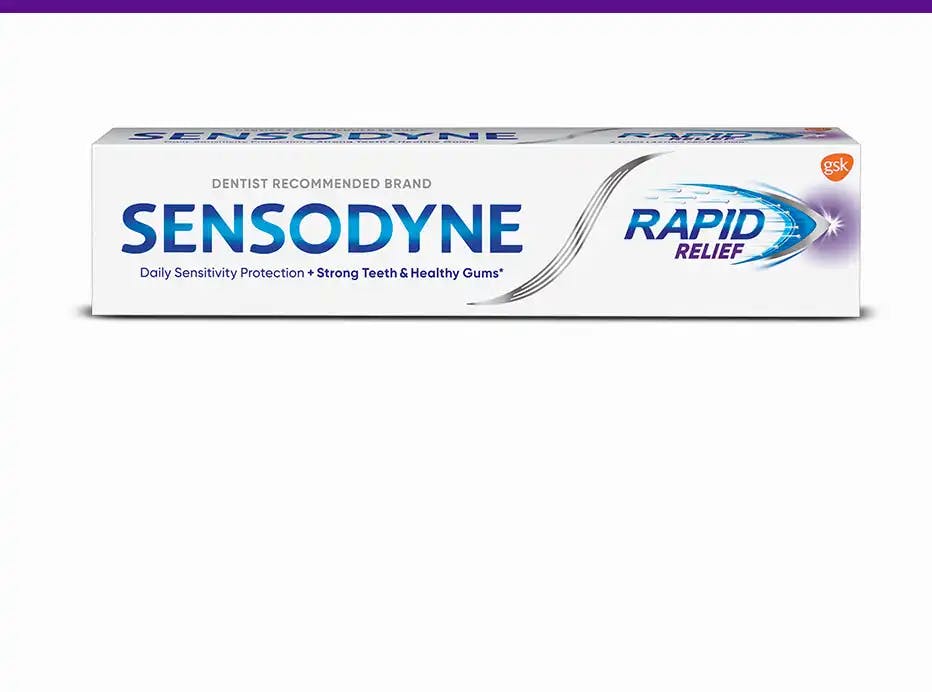Does Sensodyne toothpaste help prevent cavities?
Yes. All Sensodyne products contain fluoride, which helps protect against cavities.
Yes. All Sensodyne products contain fluoride, which helps protect against cavities.
Using a daily sensitivity toothpaste, like Sensodyne, can protect against teeth sensitivity when used twice every day.
If you have sensitive teeth and are looking for a toothpaste that protects from sensitivity and removes stains effectively, Sensodyne Whitening gently and effectively helps to remove stains to restore the natural whiteness of your teeth, while also delivering sensitivity protection.
Tooth enamel is the hard, visible, outermost covering of your teeth. Over time, your tooth enamel can wear away and gums can recede, exposing the dentine that leads to the nerves inside your teeth. Certain triggers can aggravate these nerves, causing sensitivity.
Certain triggers (like ice cream or hot coffee) can stimulate the nerves inside your teeth, resulting in a sudden, short, sharp sensation, known as tooth sensitivity.
Yes. 1 in 3 people may suffer from tooth sensitivity. As many as 2 in 5 young adults (18-35 year olds) may also have the condition.2
Sensodyne toothpastes work by either soothing the nerves inside your teeth or by building a barrier over sensitive areas of your teeth.
Use Sensodyne toothpaste as your daily toothpaste, brushing twice a day, every day, for sensitivity protection.
Sensitive teeth need to be cared for in a special way and if teeth are sensitive, there are some important but simple steps that can be taken to brush teeth correctly to help stop them from getting worse. For more information and guidance, check this link.
[1] Addy, M. (2002) 'Dentine hypersensitivity: new perspectives on an old problem', International Dental Journal, 52(S5P2), pp. 367-375.# when used as directed on the pack. Individual results may vary.*As per GfK SE ‘Toothpaste for sensitive teeth’ dentist study, July’22, commissioned by GSK



